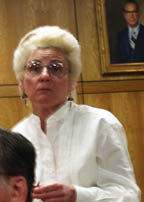Fear of a possible cancer cluster in an area affected by contamination spreading from a former factory site is unjustified, according to a report issued by the state’s Department of Health and Senior Services last month. According to Commissioner Christine Grant, only two cases of cancer have been reported in the area of the former Keystone Metal Finishers factory on Raydol Avenue, something Grant said was not unusual. “The New Jersey Cancer Registry regularly analyzes the data it collects and issues reports on statewide or county incidence rates,” Grant said in a letter written to Assemblyman Anthony Impreveduto, who requested the information on behalf of a resident in the affected area. “There are, however, limitations with cancer data at the municipality level. One limitation is that the addresses we receive are often mailing addresses or P.O. boxes which might direct mail to a post office in a neighboring town or elsewhere and do not always reflect the actual municipality of residents for these cancer patients.” For seven months, Kim Jones, a resident in the affected area, has been seeking information as to whether or not a cancer cluster had developed as a result of contamination from the Keystone Metal Finishers plant. In 1991, officials from the Environmental Protection Agency investigated the factory and found open containers of chemicals, some of which were known to cause cancer. More recently, the town discovered that solvents that had been dumped into a well on the property while the factory was in operation had spread under the homes of people living nearby. While the factory was torn down in 1994, some residents worried over the long-term affects of the chemicals found in the factory and underground. Although Town Administrator Anthony Iacono assured Jones several times at public meetings that the state would have informed the town of a cancer cluster, Jones said she wanted the report from the state. Other residents said they had suffered cancer themselves or had someone in their families with cancer, and have been pushing for health tests to determine if exposure to chemicals from Keystone is the cause. The state said the fact that two cases of different kinds of cancer were found in the area was not unusual. Grant also said there were limitations when working with small numbers of people with specific types of cancer. “The number fluctuate randomly from place to place and year to year and tend to be unstable due to chance alone,” she wrote in her report. “Cancers, like most other diseases, do not occur evenly in time and space, making it hard to draw conclusions, especially when looking at small numbers.” Grant, however, said her department had reviewed the cancer data for the town of Secaucus. “As expected, we found some types of cancer higher and some lower than the state average, but none of these variations were great enough to indicate further investigation,” Grant wrote, noting that there was no evidence of a cancer cluster in town at this time.
All clear? State says there are no cancer clusters near Keystone site
